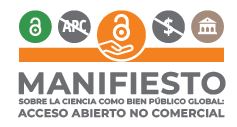Historical background of the Maracaibo city, 1529-1574
DOI:
https://doi.org/10.5281/zenodo.16896077Keywords:
Maracaibo, colonial foundations, American urban planning, 16th century, Indian law, regional history, border cityAbstract
This essay analyzes the founding background of the city of Maracaibo between 1529 and 1574, based on a critical review of the three historical attempts that marked its establishment: the initial occupation by Ambrosio Alfinger (1529), the founding of Ciudad Rodrigo by Alonso Pacheco (1569), and the definitive consolidation of Nueva Zamora by Pedro Maldonado (1574). Through the examination of primary sources, colonial chronicles, and Indian legislation, it is argued that the 1529 foundation lacked legal validity, being more of a strategic occupation than a founding act. In contrast, the 1569 attempt did meet the legal requirements, although it failed for material reasons. The 1574 foundation, on the other hand, managed to articulate political support, urban planning, and institutional roots, guaranteeing the permanence of the settlement. The essay proposes a review of the official narrative that recognizes the anniversary of 1529 as founding, and suggests that Maracaibo should be understood as the result of a progressive founding process, conditioned by multiple geohistorical factors specific to border territories.
Downloads
References
Aguado, P. de. (1581). Recopilación historial. Manuscrito, Biblioteca Nacional de España.
Archivo General de Indias (AGI). (1573). Carta del gobernador Diego de Mazariegos al Rey sobre la situación de Maracaibo (Leg. 122). Sevilla, España.
Archivo General de Indias (AGI). (1579). Relación de los alcaldes Rodrigo de Argüelles y Gaspar de Párraga sobre el estado de Maracaibo (Leg. 130). Sevilla, España.
Recopilación de Leyes de Indias. (1680). Recopilación de leyes de los reinos de las Indias. Libro IV, Título V. Imprenta Real.
Published
How to Cite
Issue
Section
License
Copyright (c) 2025 Ethos Journal

This work is licensed under a Creative Commons Attribution-NonCommercial-ShareAlike 4.0 International License.
All content of Ethos Journal will be free access, distributed under the Creative Commons license (BY-NC-SA).




